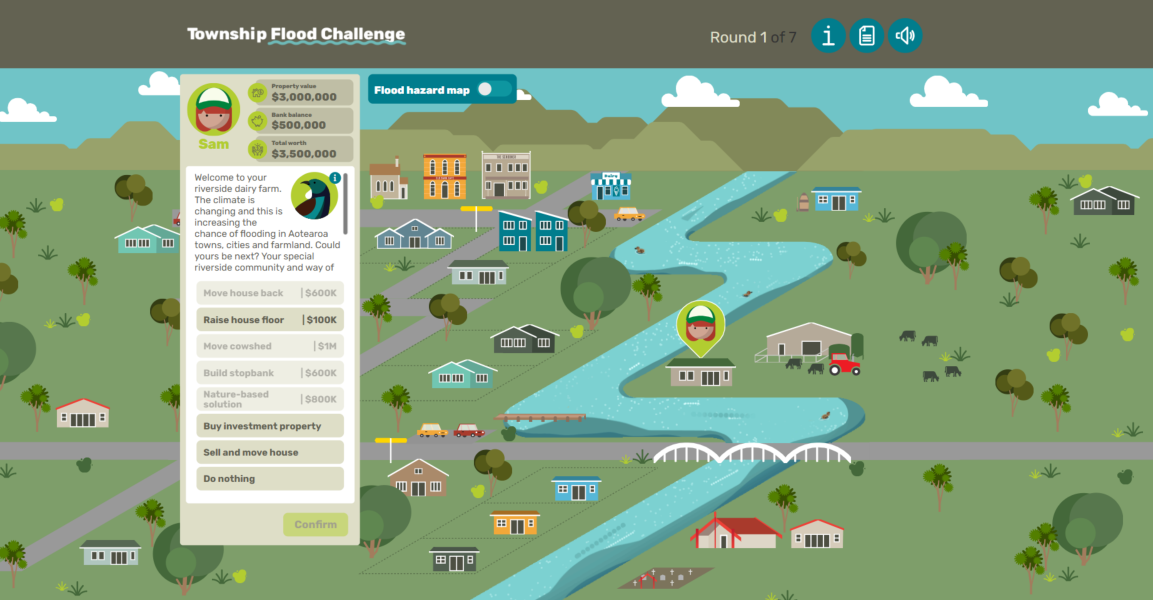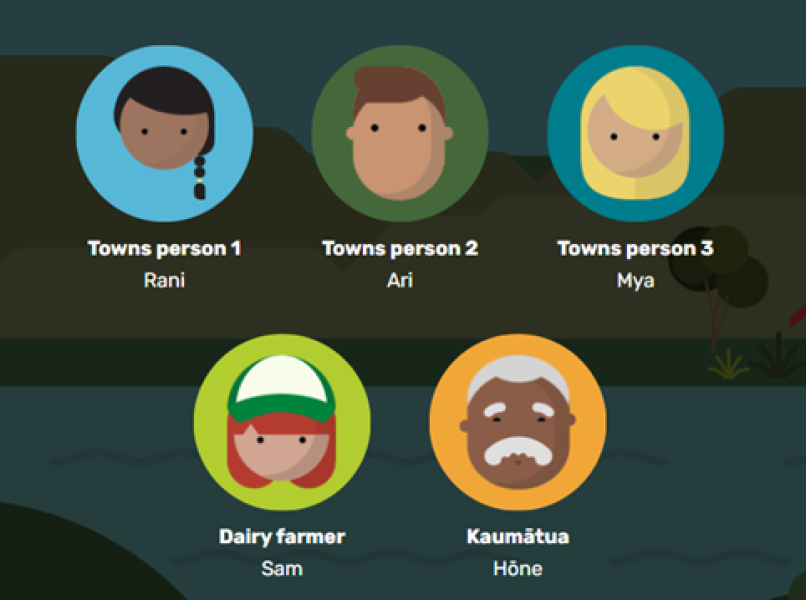Welcome to the NIWA Township Flood Challenge game.
Like many towns and cities in Aotearoa New Zealand, a river runs through this small rural settlement containing numerous shops and businesses, a church, homes, farms and a marae. The town and its surrounds are all situated on flood prone land.
The community has noticed there has been an increase in extreme weather events causing flooding, agreeing that climate change is the cause. To protect where they live, members of the community must decide on the most appropriate adaptation options for their situation. However, the impacts of climate change are unpredictable, so no one really knows when a flood will occur nor its severity. Played in 10-year blocks over 70 years, some years have a number of extreme events, others none, therefore there is no perfect solution.
The players
Each player chooses one of five ‘community’ characters, four who own properties - three residential properties and a dairy farm – as well as one Māori land tenure which includes buildings and ūrupa (burial sites).
After choosing their character and before playing the game, players are invited to imagine their characters' lived experiences - who do they live with, do they have a job and if so, what is it, how long have they been living in the town, and what do they enjoy about living in the town. Finally, thinking about adaptation changes that may need to happen, who do they need to talk to make those changes?
Learning support
To support the player's experience, four learning sequences have been developed. The first two discuss the physical science behind climate change, flooding and adaptation. The remaining two open up the discussion, placing the players' experiences and decisions into a climate equity/climate justice context. Such an approach says that the needs, rights, voices and aspirations of the most affected people and groups should be centred in how societies respond to, and take action on, climate change and sustainability. To learn more, please follow this link.
Next: Learning support #1: Extreme weather and climate change


